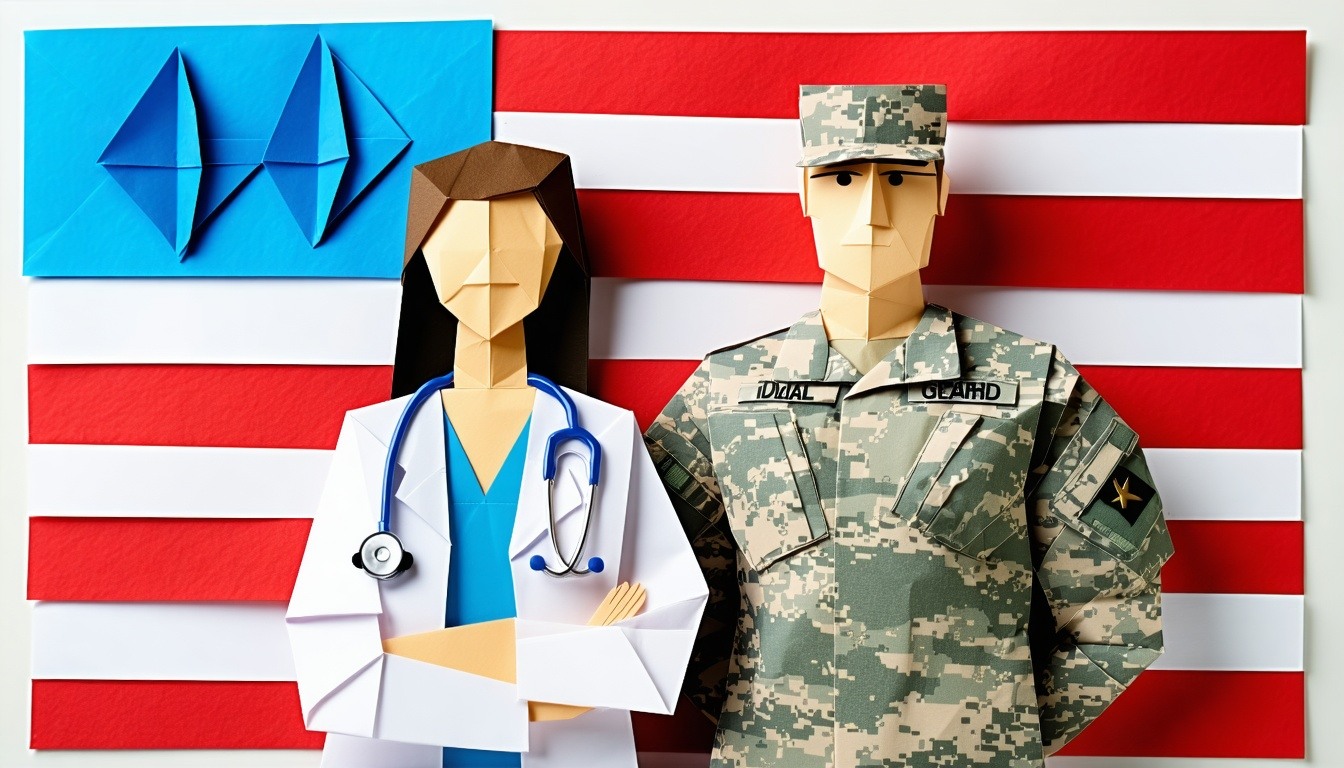As a nation that prides itself on supporting our military, we have a glaring blind spot in our healthcare system. While active-duty military personnel receive care through the Military Health System, our reservists and National Guard members—nearly 38% of our total military force—often rely on civilian healthcare providers during their non-active periods. This disconnect creates a dangerous gap in military readiness that we can no longer afford to ignore.
I've spent decades working with military personnel transitioning to civilian life and witnessed firsthand how commercial healthcare systems struggle to meet the unique needs of our part-time warriors. The consequences extend far beyond individual health outcomes, directly impacting our national security.
The Hidden Backbone of Our Military
The numbers tell a compelling story. Reservists and National Guard members comprise approximately 38% of our military force—over 800,000 service members. These citizen-soldiers serve dual roles, balancing civilian careers with military commitments. Unlike their active-duty counterparts, nearly 70% of these service members receive their primary healthcare through private insurance and commercial healthcare systems when not activated.
Many fail to recognize that this arrangement creates a critical responsibility for commercial healthcare providers. A 2023 RAND Corporation study shows that only 23% of civilian healthcare facilities have specialized training or protocols for addressing military-specific health needs. This preparedness gap is not just concerning—it's dangerous.
The Readiness Impact
Military readiness isn't just about equipment and training—it's fundamentally about health. A reservist whose chronic conditions are poorly managed by civilian providers may be medically disqualified when called to active duty. In fact, medical readiness issues account for approximately 34% of deployment limitations among reserve components.
Consider the following statistics:
- Nearly 40% of reservists report delaying care for service-connected conditions due to challenges navigating civilian healthcare systems.
- Approximately 28% of Guard members cite inadequate treatment of military-specific health concerns by civilian providers.
- Medical readiness rates for reserve components consistently lag active-duty forces by 12 to 15 percentage points.
These gaps translate directly to reduced force capability when our nation needs all hands on deck.
Commercial Healthcare's Critical Role
Commercial healthcare systems must recognize their essential role in our national defense infrastructure. This isn't just about patriotism—it's about fulfilling their mission to provide appropriate care to a significant patient population with unique needs.
The current shortcomings are multi-faceted. Most civilian healthcare providers lack training in recognizing and treating military-specific conditions. Electronic health records rarely capture military service information or facilitate seamless information sharing with military health systems. Appointment scheduling and administrative processes often fail to accommodate drilling schedules and military obligations.
What Commercial Healthcare Systems Must Do
First, health systems should implement military service screening questions in their intake processes. Identifying reservists and Guard members allows for more appropriate care planning and can trigger specialized support pathways. Electronic health records should be configured to capture and share this information appropriately with military health systems when needed.
Second, commercial healthcare systems must invest in military cultural & clinical competency training for their staff. Understanding the unique stressors, exposures, and health risks associated with military service is essential for providing appropriate care. This includes recognizing signs of post-traumatic stress, traumatic brain injury, and other conditions prevalent among service members.
Third, healthcare facilities should establish formal partnerships with local military units and VA facilities. These relationships can facilitate training exchanges, streamline referral processes, and create clearer pathways for continuity of care when reservists transition between civilian and military status.
A National Security Imperative
This isn't merely a healthcare issue—it's a national security imperative. When our reservists and Guard members aren't receiving appropriate healthcare in their civilian lives, they arrive for duty with unaddressed health concerns that limit their effectiveness and availability.
The COVID-19 pandemic illustrated the critical importance of our reserve components— National Guard members alternated between serving on the frontlines of healthcare response and deploying overseas. Their ability to fulfill these dual missions depends fundamentally on robust health systems that understand and address their unique needs.
Commercial healthcare systems have both an opportunity and a responsibility to bridge this gap. By recognizing their role in military readiness, implementing specialized training, adapting administrative processes, and forming strategic partnerships, they can significantly improve care for this vital population.
As we face an increasingly complex global security environment, we cannot afford to neglect this critical aspect of military preparedness. Our reservists and National Guard members stand ready to serve—our healthcare systems must be equally ready to serve them.


